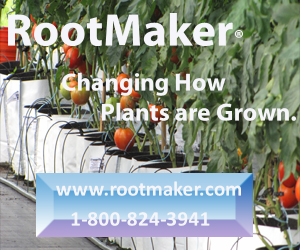
Growing your first garden is a wonderful and fulfilling endeavor. This guide will walk you through the fundamental steps to kickstart and nurture your garden, ensuring success from the very beginning. Here, My Garden and Greenhouse delves into the world of gardening, where you’ll discover the joys of cultivating life from the soil, one plant at a time.
Planting for Success
Selecting the right time to plant is critical. Depending on your location’s climate, research the ideal planting seasons to maximize your garden’s potential. Furthermore, choosing plant varieties suited to your skill level is essential. Beginners should opt for plants that are known to thrive under basic care. Adequate spacing between plants promotes healthy growth, as overcrowding can lead to resource competition. Consistent, but not excessive, watering is key to prevent root suffocation and diseases.
Creating a Budget for Your Garden
Budgeting for your garden doesn’t have to be overwhelming. Start by using a free budget template to organize your expenses and plan your purchases. This simple step will help you stay on track financially while creating the garden of your dreams.
Choosing Your Greenery
Identify your gardening objectives. Whether you’re interested in cultivating flowers, vegetables, herbs, or a combination, align your choices with your goals. Extensive research on plant preferences according to your climate and soil type is vital. For beginners, it’s advisable to start with a few easy-to-grow options. This approach allows you to gain confidence and experience before diversifying your garden.
Nurturing Your Soil
The foundation of a successful garden lies in healthy soil. Begin by testing your soil to determine its pH and nutrient levels. This information guides your plant selection and helps you make necessary amendments. Enhance your soil with organic matter, such as compost, to enrich its nutrient content. Don’t overlook mulching your garden beds; it retains moisture, suppresses weeds, and maintains a favorable environment for plant growth.
Essential Garden Tools
Equipping yourself with the proper tools is essential for a smooth gardening experience. Basic tools like hand trowels and garden forks are invaluable for planting and weeding. Pruning shears aid in trimming and shaping your plants, while a garden hose or watering can ensure adequate irrigation. Don’t forget to invest in sturdy gardening gloves to protect your hands during your gardening tasks.
Perfecting Your Garden Location
Careful consideration of your garden’s location is pivotal. Ensure your garden receives sufficient sunlight, ideally around six to eight hours per day, as most plants thrive in these conditions. Pay attention to the drainage of the area; adequate drainage prevents waterlogging and root damage. Additionally, proximity to a water source makes irrigation more convenient, saving you time and effort tending to your garden.
Ensuring Vibrant and Healthy Plants
To maintain vibrant and healthy plants, conduct regular inspections for signs of pests or diseases. Early detection allows for timely intervention, preventing the spread of problems. When dealing with pests or diseases, opt for natural remedies or organic pesticides to minimize environmental impact. Establish and adhere to a consistent watering and fertilizing schedule, tailored to the specific needs of your plants. This ensures optimal growth and flourishing greenery.
Embarking on your gardening journey, whether in a limited space or with plans to move to a larger property, promises immense fulfillment. Remember, success lies in meticulous planning, thorough research, and equipping yourself with the right tools and knowledge. While the prospect of moving to a home with more land can expand your gardening horizons, nurturing your garden is a rewarding learning experience. Initial setbacks should never deter your passion for cultivating life from the soil.
Carrie Spencer is the owner of The Spencers Adventures. You can visit her website at TheSpencersAdventures.net.




Comment here